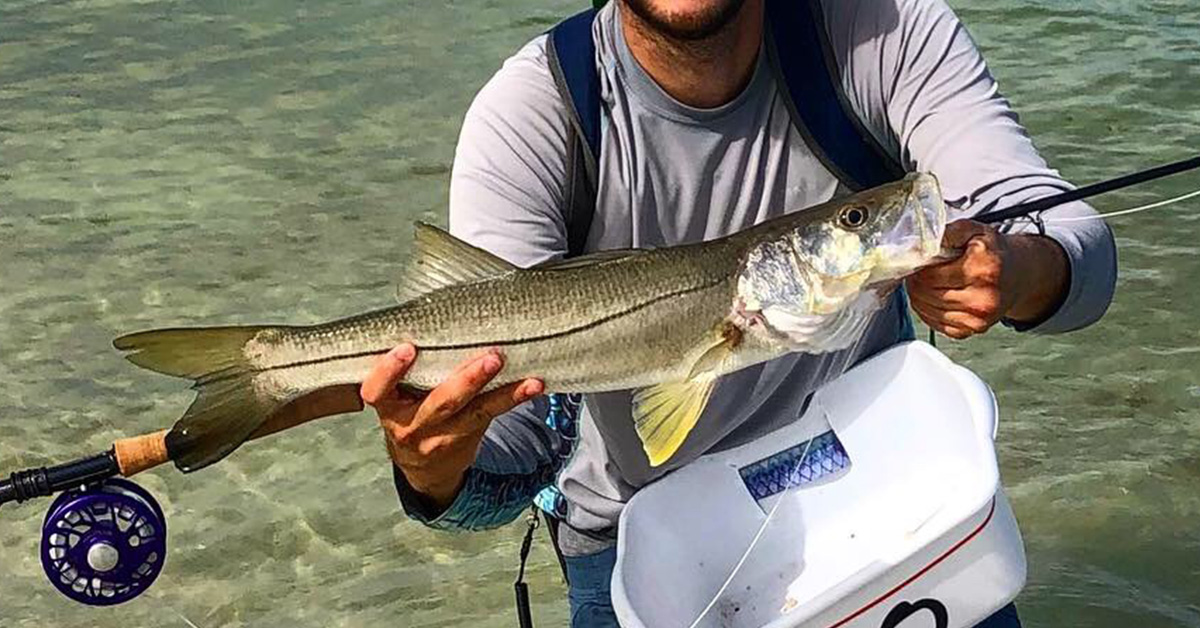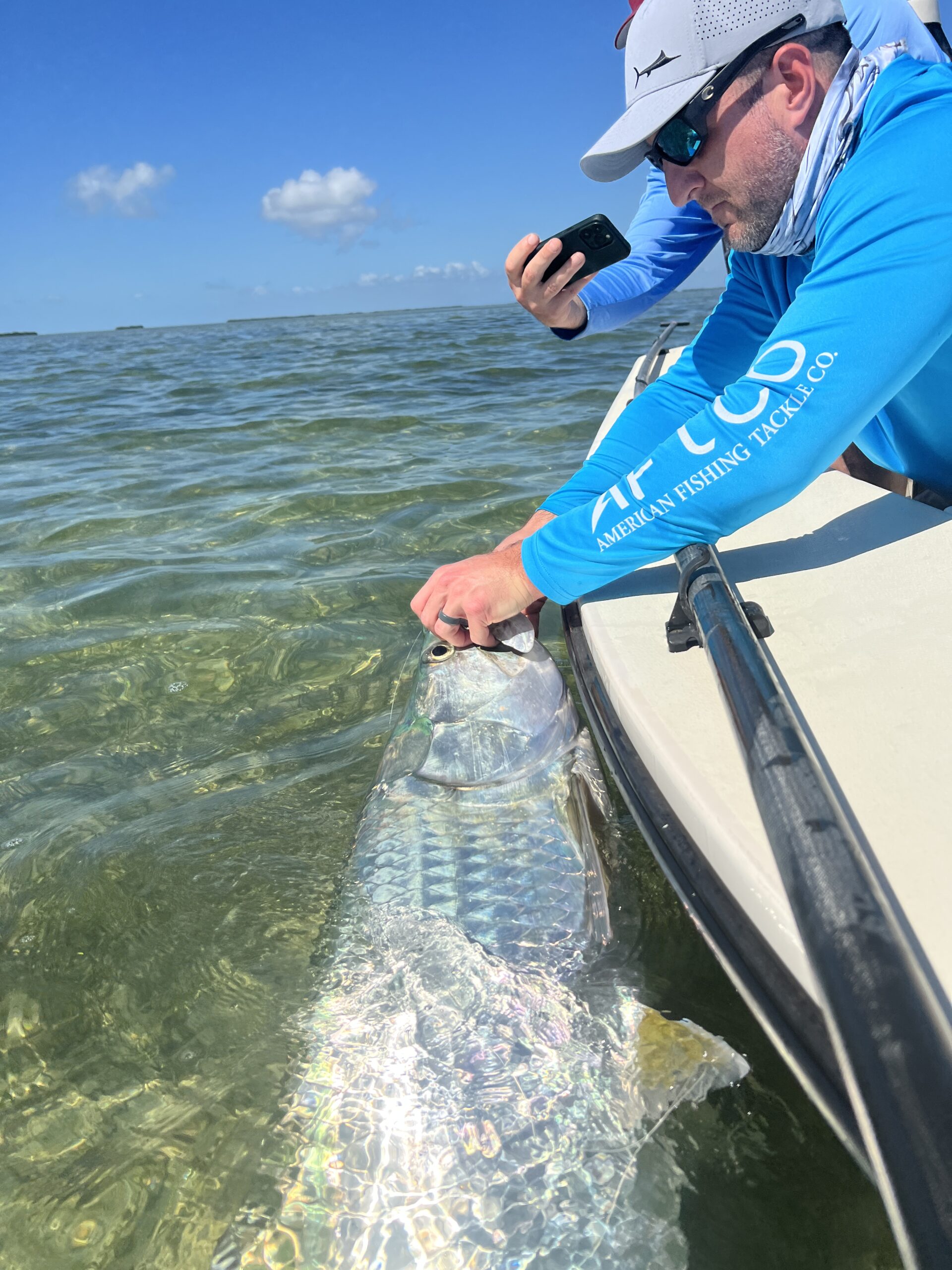Saltwater fly fishing requires a specific type of fly line designed to withstand the harsh conditions of the saltwater environment, just like fly rods and reels.
Here are some things to consider when choosing a saltwater fly line:
- Line weight: The line weight is the most important factor to consider when choosing a saltwater fly line. The line weight should be matched to the size of the rod, account for the fish you are targeting and work well with the type of fly fishing you’ll be doing. For example, if you are targeting tarpon, you will need a heavier line weight. If you are targeting bonefish, you will need a lighter line weight.
- Line type: There are two main types of fly lines for saltwater fly fishing: floating lines and sinking lines. Floating lines float on the surface of the water, while sinking lines run below the surface. Intermediate lines can be popular as well. The type of line you choose will depend on the species of fish you are targeting and the depth of water you will be fishing in.
- Line construction: Fly lines are made from a variety of materials. These materials can vary from nylon, polyester, and fluorocarbon. The line construction will affect the performance of the line, such as its casting ability, durability, and sensitivity.
- Price: Saltwater fly lines can range in price from a few dollars to several hundred dollars. It is important to set a budget before you start shopping so that you do not overspend.
Now, it’s time to narrow down your choices. There are many great saltwater fly lines on the market, so it is important to do your research and find the right one for you.
When choosing a saltwater fly line, you need to account for the size and strength of the fish you are targeting will determine the line weight and type of line you need. Saltwater environments can be very harsh; wind and waves can come out of nowhere! Take that into consideration when browsing lines. Also, be sure to choose a line that will fit your experience level. If you’re a beginner, you’ll probably want to choose a line that is easier to cast and control.
Talking to other saltwater fly fishermen to get recommendations is a great way to start. They can give you valuable insights into the different lines on the market and help you choose the best one for you.
The internet has a plethora of information; reading reviews of different saltwater fly lines online can be a great way to learn about the pros and cons of different lines.
If you can, try out the line before you buy it to feel how it casts and handles. Some fly shops have demo lines that they will let you test out prior to purchasing a line.
No matter your budget or experience level, there is a saltwater fly line for you. Research, find the right line for your needs, get out there and have fun fly fishing!


Leave a Reply
You must be logged in to post a comment.